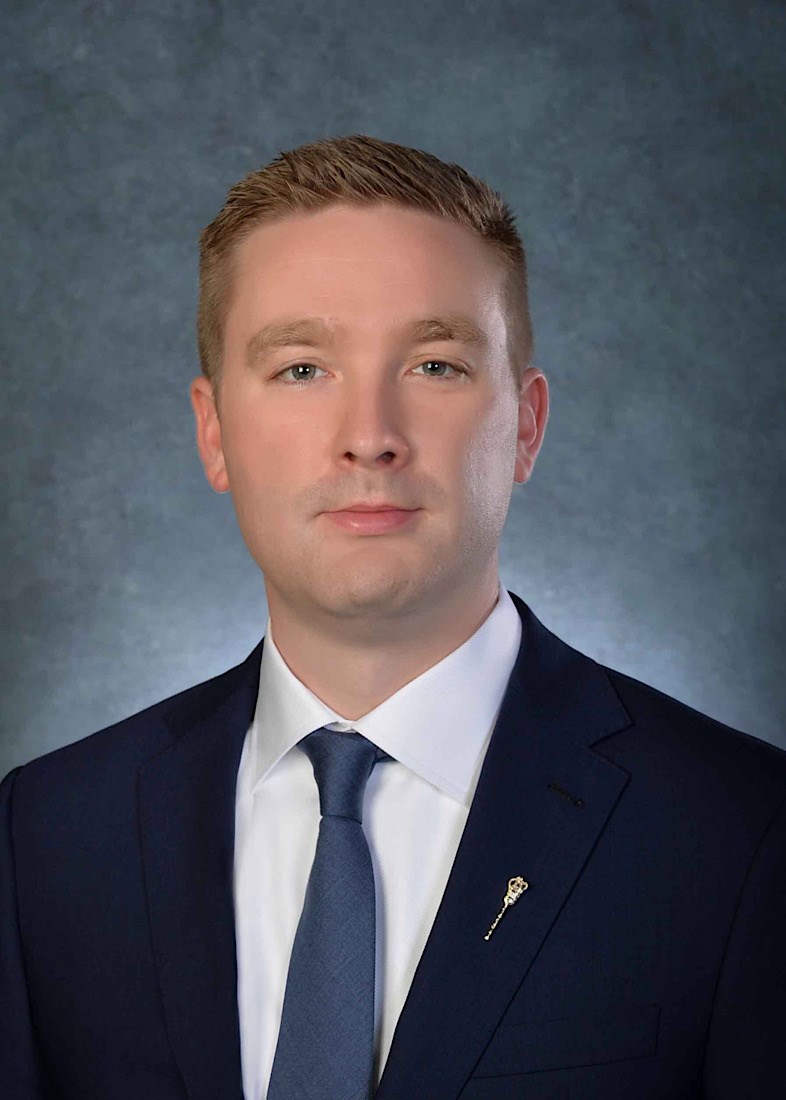THE BATTLEFORDS ‑ Battlefords MLA Jeremy Cockrill says a number of government initiatives \ came out of the fall sitting of the legislature.
The fall sitting wrapped up Dec. 9 in Regina. In speaking to the News-Optimist in a year-end interview Monday, Cockrill noted the five goals of the government in the session: stronger Saskatchewan, safer Saskatchewan, healthier Saskatchewan, better educated Saskatchewan and more independent Saskatchewan.
“That’s the best way to summarize where our government views the way forward for our province especially coming out of a pandemic year, and really what is going to position our province best over the long term.”
The most significant portion of the throne speech in Cockrill’s view was on the safer Saskatchewan portion. Those initiatives included expansion of Crime Reduction Teams across the province, the Warrant Enforcement and Suppression Team and the Saskatchewan Trafficking Response Team.
These were “targeted initiatives where the Ministry of Corrections, Policing and Public Safety will be working with the RCMP and municipal police forces to really address the most acute public safety needs in the province.”
Those initiatives will help the local RCMP in the Battlefords because it will mean they will “spend more time in our community rather than issues further afield in the region.”
On Stronger Saskatchewan, Cockrill noted the number of economic investments announced this year including Cargill, Viterra, Richardson and the BHP Jansen project.
He noted the ag industry had a difficult year with the drought, but with the increase in canola crushing activity “that excites me for producers in our region.”
For Healthier Saskatchewan, Cockrill said there has been an investment of a significant amount of resources in addressing the pandemic, and in addressing the surgical backlog.
He pointed to the plans to permanently increase ICU beds from 79 to 90 in 2022, and work towards a permanent ICU capacity of 110 beds. “We recognize that’s really important for us as a province to have that capacity.”
For the Better Educated Saskatchewan plank, Cockrill said he really liked what the government did with the “Take a Break” campaign, which focuses on “having a healthier relationship with social media.”
As well, more resources are being added to some classrooms, especially in the kindergarten to Grade 3 age groups.
Finally, on the More Independent Saskatchewan plank, Cockrill said that as a provincial government “we really would like to find more ways where Saskatchewan could flex its muscle, whether that’s policing or taxation, or immigration.”
He said immigration was one area that the province has had success already.
Cockrill noted a unanimous motion in the legislature to amend the Saskatchewan Act to deal with the CPR taxation issue. That federal legislation has a loophole that exempts CP Rail from taxation in Saskatchewan, a loophole Saskatchewan wants to see closed.
Looking back at the session, it got heated at times as the opposition NDP repeatedly hammered Premier Scott Moe over the handling of the pandemic. Cockrill vented some of his frustrations with the tone of the session.
“This is an Opposition that is so focused on using fear and division, and doom and gloom, I think for their own political gain, for political points. The tone of the Opposition in the session has done nothing to improve our province or bring people together after a difficult couple of years. So, it was tense in there.”
There was some “pretty significant disagreement” between the opposition and government on the way forward, said Cockrill, but he said they were confident they had Saskatchewan on the right track. “Opposition obviously feels differently, and I suppose that’s their job, but just the tone they brought to the legislature was a little frustrating to listen to.”
Regarding the COVID-19 pandemic challenges, Cockrill acknowledged he could “sense that fear and uncertainty” from constituents. He also noted there are many unknowns about the Omicron variant.
He cited two areas of significant COVID-19 progress.
“If we compare where we’re at now compared to a year ago, we have more tools …” said Cockrill. “We have vaccines. Since we put in the proof-of-vaccination or negative-test policy — we announced it in mid-September, it came effective Oct. 1 — we’ve had more than 200,000 more people go out and be vaccinated. So, I think (as a) province we are better positioned to deal with new variants.”
The other tool he noted is rapid tests. “I would say in Saskatchewan we’ve had a really good job over the last couple of months of making rapid tests very easy to access,” said Cockrill.
Just this past week, Cockrill said, he picked up rapid tests from the library and his wife had picked up tests at the town hall. He said they plan to use them, so they do not carry the virus asymptomatically to large gatherings.
Overall, he expressed confidence in Saskatchewan’s ability to handle the pandemic.
“I think we’re better positioned now as a province really than we were anywhere in the pandemic to deal with variants or waves or surges.”
Looking ahead 2022, the plan is for the budget to presented in the spring, so Cockrill will be working on that. But he said it will all come back to the five goals he talked about.
“We’re incredibly optimistic about the future of our province. We are well-positioned economically. In the face of a pandemic the people of this province are going to step up to any challenges that’s presented.”
One of the most significant challenges the government will need to face, Cockrill said, is “bringing our communities, our province and our country really, back together after a couple of years that have been divisive on a number of fronts.”
“I think that’s something our government is going to be working very hard on,” said Cockrill, “is to find ways to bring our community back together so we can take advantage of the bright future facing this province.”



